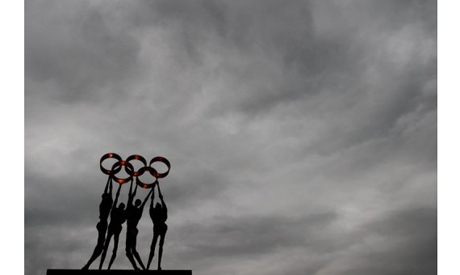
Sculpture of people carrying Olympic rings, November, 2012 in Lausanne. (Photo: AFP)
Greece has pulled two ancient statues from an ongoing Olympic Games exhibition in Qatar in a dispute over nudity, a culture ministry source said on Tuesday.
“The statues have already returned to Greece,” a culture ministry source told AFP, adding: “Organisers in Qatar wanted to cover up the statues’ members with black cloth. So they were never put on display, they went back into storage and returned on April 19.”
The statues — an archaic-era Greek youth and a Roman-era copy of a Classical athlete — are both nude, the manner in which Olympic athletes competed in antiquity.
Greece’s junior minister for culture Costas Tzavaras had travelled to the Qatari capital of Doha for the opening of the exhibit on March 27, saying it opened a “bridge of friendship” between the two countries.
According to the culture ministry, Greece has contributed nearly 600 exhibits from the National Archaeological Museum, the Numismatic Museum and the Museum of Olympia, birthplace of the Games.
The Doha exhibit runs to June 30.
A similar exhibit had previously been hosted in Berlin.
Greece has long wooed Qatar to entice investment in its flagging economy from the energy-rich Gulf emirate.
In January it was announced during a visit by Greek Prime Minister Antonis Samaras that Qatar planned to invest up to a billion euros ($1.3 billion) in a joint fund with Athens to bolster the recession-hit Greek industry.
The emirate has also rejoined a public bidding competition to develop the former Athens airport, one of the prized sites of Greece’s privatisation drive.
And last month it was reported that the emir of Qatar had purchased the privately-owned Ionian Sea islet of Oxia.
Short link: